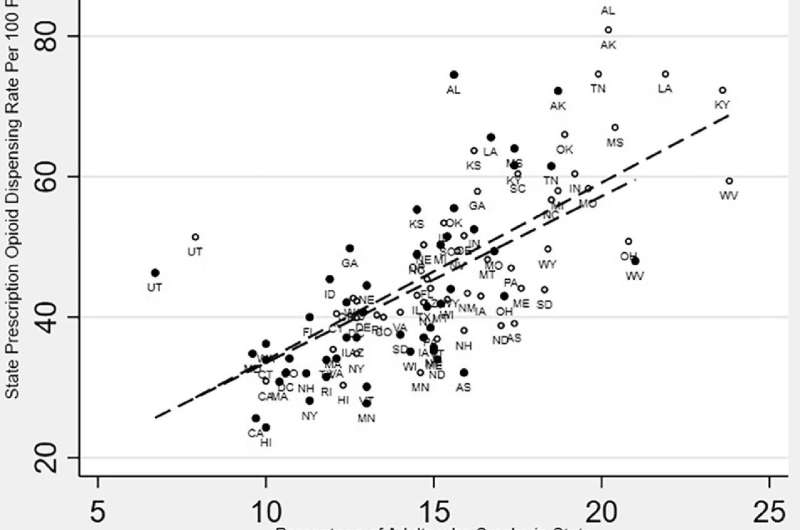New research reveals a strong link between smoking and opioid use, suggesting that integrating smoking cessation programs into substance abuse treatments could be crucial in addressing the ongoing opioid crisis. The study provides nationally representative data on the association between smoking, chronic pain, and prescription opioid use, highlighting the need for a more holistic approach to healthcare and addiction treatment.

The Smoking-Opioid Connection
The study, published in the American Journal of Preventive Medicine, analyzed data from the US Agency for Healthcare Research and Quality’s Medical Expenditure Panel Survey (MEPS) and the Centers for Disease Control and Prevention’s National Health Interview Survey. The findings paint a concerning picture: although only 37% of the population has ever smoked, smokers account for 69% of annual prescription opioid use.
What’s more, heavy smokers, who make up just 12% of the population, use as many opioids as the 63% who have never smoked. This strong correlation between smoking and opioid use highlights the need for a more integrated approach to healthcare and addiction treatment.
Chronic Pain, Mental Health, and the Opioid Crisis
The study’s authors, William Encinosa, Didem Bernard, and R. Burciaga Valdez, found that as smokers increase their daily number of cigarettes, they report higher rates of chronic pain, more prescription opioid use, severe work limitations due to pain, and poor mental health. This suggests that smoking and opioid use are not just correlated, but that they are intertwined in a complex web of physical and mental health challenges.
The researchers emphasize that addressing the opioid epidemic requires a more holistic approach that takes into account the underlying drivers of addiction, such as chronic pain and mental health issues. By integrating smoking cessation programs into substance abuse treatments, healthcare providers can tackle multiple facets of the crisis simultaneously and potentially reduce the burden of opioid use across the country.
Towards a Comprehensive Solution
The researchers conclude that combining smoking cessation with substance abuse treatment could be a crucial step in addressing the opioid epidemic. This is particularly relevant as opioid dispensing rates have declined in recent years, thanks to various policy interventions, such as prescription drug monitoring systems and the Centers for Disease Control and Prevention guidelines for chronic pain treatment.
However, the researchers note that there are still prescription opioid hotspots in the US, and that any efforts to reduce smoking, such as banning various types of cigarettes, could also contribute to easing the opioid crisis. By taking a more holistic approach to healthcare and addiction treatment, healthcare providers and policymakers can work towards a comprehensive solution that addresses the root causes of the opioid epidemic and improves the overall well-being of individuals and communities.
